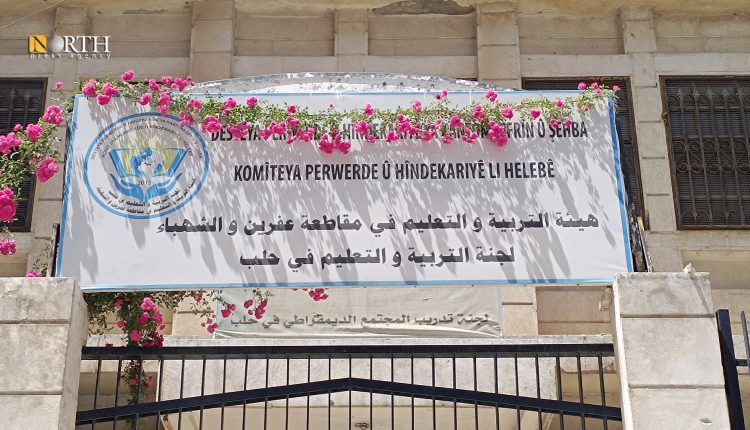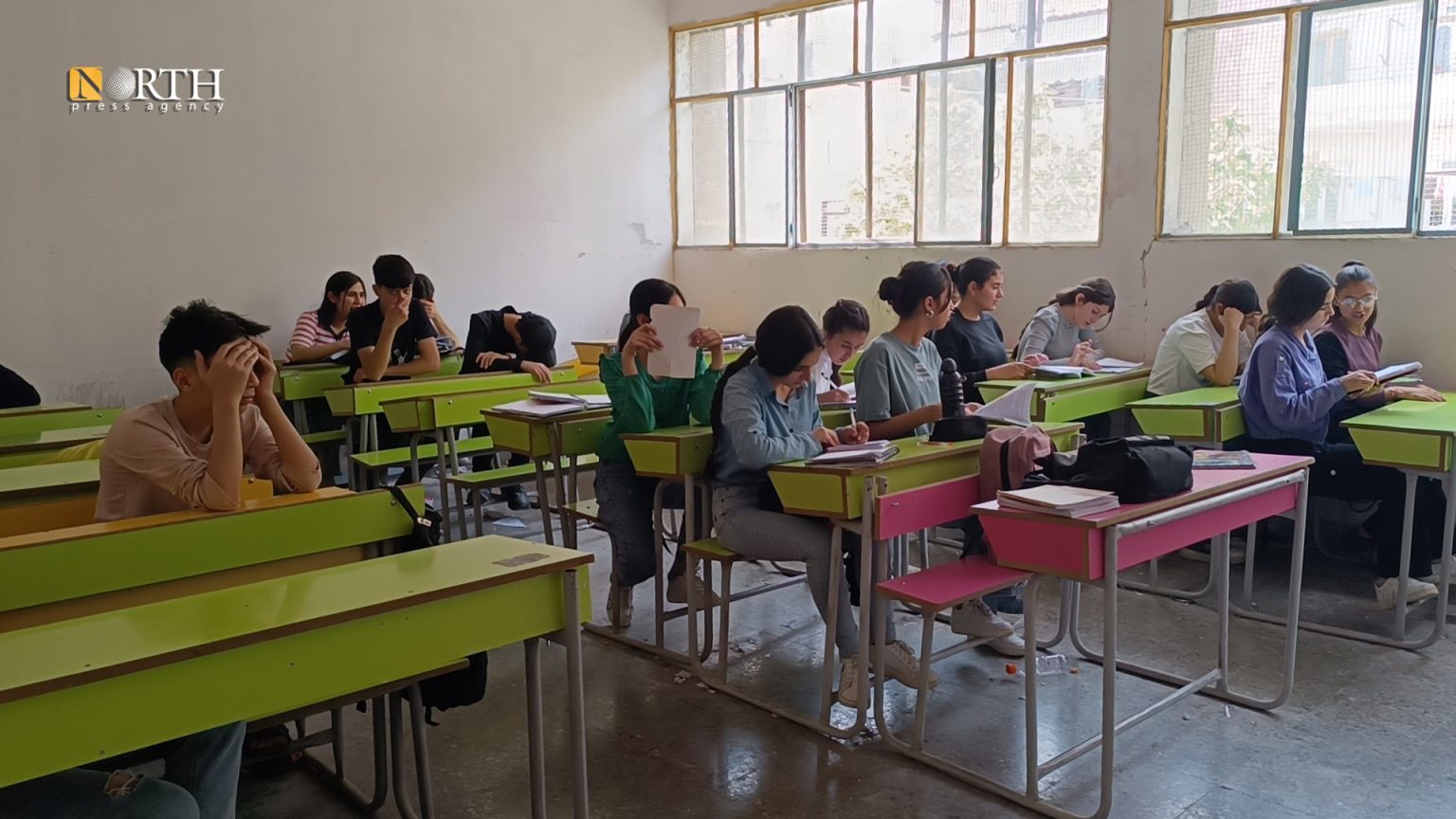
By Nouraddin Omar
ALEPPO, Syria (North Press) – Since the signing of the Aleppo Agreement between the Syrian Democratic Forces (SDF) and the newly formed Syrian government, hope has been rekindled for Roshin Koto (35), a resident of the Sheikh Maqsoud Kurdish neighborhood in Aleppo, northwestern Syria. She now looks forward to official recognition of her children’s school certificates issued by the Autonomous Administration of North and East Syria (AANES), which she sees as essential for safeguarding their future.
In the predominantly Kurdish neighborhoods of Sheikh Maqsoud and Ashrafiyeh in Aleppo, schools have been following the AANES’ curriculum for years. However, the former Syrian government had refused to officially recognize these curricula or the certificates issued by these institutions.
A critical need for certificate recognition
Like many residents of Sheikh Maqsoud, Roshin Koto views this recognition as urgent and vital. “Our children have been studying under the AANES’ system for years without any acknowledgment from the Syrian state,” she told North Press.
“For us and other families in Sheikh Maqsoud and Ashrafiyeh, these schools are more than just educational institutions,” she added. “Kurdish children have the right to be educated in their mother tongue, and we are calling for these certificates to be treated on par with those from other parts of Syria.”
Koto emphasized that students in these neighborhoods have excelled in Kurdish-language education and urged that official exams be held within their local schools—an important step, she said, toward respecting Syria’s cultural and societal diversity.
Recognizing the Kurdish language
Golizar Ali (40), who was displaced from Afrin in 2018 and now resides in Sheikh Maqsoud, also underscored the importance of recognizing Kurdish as a language of instruction and the value of the AANES’ curriculum. She highlighted its emphasis on weekly student assessments, which she believes has significantly improved learning outcomes.
“When we arrived from Afrin, there was only one school in the neighborhood,” Ali noted. “Now, education has expanded to cover all levels, from primary school to university. We demand that exams be administered right here in our schools.”
The AANES began introducing its educational curriculum in the 2015–2016 academic year, initially for the first three grades, and gradually expanded it to cover all school levels. The system includes Kurdish and Arabic as core languages of instruction and has operated independently of the former Syrian government, whose previous political stance prevented official recognition.
For families in Sheikh Maqsoud, Ashrafiyeh, and across northeastern Syria, the lack of state recognition for these certificates remains a serious challenge—jeopardizing the academic future of thousands of students and undermining their access to higher education and employment opportunities. The recognition of these qualifications is now a pressing demand shared by communities who seek inclusion, dignity, and the right to learn in their own language.

Persistent challenges
Zahida Rashid, co-chair of the Education Committee in Aleppo’s Kurdish neighborhoods—affiliated with the AANES—says the committee was established in 2015 and currently oversees 13 schools. Of these, three implement the AANES’ curriculum alongside Arabic, while the remaining 10 follow the Syrian government’s curriculum with supplementary Kurdish language classes.
Rashid highlights the committee’s dual function: overseeing the training and qualification of teaching staff at the teacher training institute according to the AANES’ educational framework, while also directly supervising student instruction.
“Despite our limited resources, we have delivered intensive training to teachers to enable them to effectively educate students and protect the region’s linguistic and cultural diversity—whether Kurdish or Arab,” she said.
On April 1, Badran Chiya Kurd, a senior AANES official, announced a comprehensive administrative, security, and service agreement between the Council of Kurdish Neighborhoods in Aleppo and the Syrian transitional government’s local administration.
The agreement affirms the preservation of the unique status of the Kurdish neighborhoods—Sheikh Maqsoud and Ashrafiyeh—across security, administrative, service, cultural, and political domains. These are to be managed in coordination with the relevant Syrian institutions in Aleppo, with dedicated mechanisms established for implementation.
According to Article 14 of the agreement, signed between the civil council of Sheikh Maqsoud and Ashrafiyeh and a committee formed by the Syrian Presidency, existing service, educational, and administrative institutions are to be maintained until a joint resolution is reached by central committees.
However, Rashid notes that, despite the agreement, the Education Committee has received no communication from the Syrian Presidential Committee regarding the unification or modification of educational curricula. As a result, changes have thus far been limited to the removal of content explicitly referencing the Ba’ath Party.
Efforts by North Press to obtain an official response from Syrian transitional government education authorities in Aleppo were unsuccessful, as officials declined to comment on the agreement signed between the SDF and the Syrian Presidential Committee.
